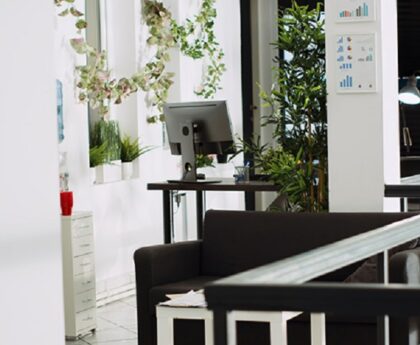Introduction: Why the Haustür (Front Door) Is More Than Just an Entrance
Your front door, or Haustür in German, serves as more than just a way to enter your home. It is the face of your house — the first impression for visitors and a crucial element of your home’s curb appeal, security, insulation, and energy efficiency.
Whether you’re building a new home or replacing an old entrance, choosing the right Haustür involves balancing style, function, durability, and safety. In this in-depth guide, we’ll explore everything you need to know about selecting the ideal front door.
Types of Front Door Materials: Pros and Cons
Choosing the right material for your Haustür is critical. Different materials offer varying levels of durability, maintenance, insulation, and aesthetic appeal.
1. Wood Front Doors
Wooden doors offer timeless beauty, natural warmth, and classic appeal.
Pros:
- Elegant and traditional look
- Can be customized with carvings, panels, and stains
- Excellent natural insulation
Cons:
- Requires regular maintenance (painting, sealing)
- Can warp or crack with moisture exposure
- More expensive than some alternatives
2. Steel Front Doors
Steel doors are strong, secure, and often used in commercial and modern homes.
Pros:
- Very secure and impact-resistant
- Affordable
- Low maintenance
Cons:
- Can rust if the finish is damaged
- Not as visually appealing as wood or fiberglass
- Limited design options
3. Fiberglass Front Doors
Fiberglass Haustüren are popular for their durability and energy efficiency.
Pros:
- Excellent thermal insulation
- Can mimic the look of wood
- Low maintenance and long lifespan
Cons:
- Mid-to-high price range
- Limited color fading resistance in direct sunlight
4. Aluminum Front Doors
Aluminum doors are sleek, modern, and lightweight.
Pros:
- Rust-resistant and weatherproof
- Ideal for contemporary homes
- Custom colors and finishes available
Cons:
- Expensive
- Not as insulating as other materials without thermal breaks
5. Glass Front Doors
Usually combined with another material, glass front doors add natural light and aesthetic appeal.
Pros:
- Enhances daylight in the entryway
- Stylish and modern
- Available in frosted, tinted, or decorative glass
Cons:
- Privacy and security concerns
- May require double/triple glazing for energy efficiency
Design Considerations: Style That Matches Your Home
Your Haustür should blend seamlessly with your home’s architectural style. Here are some popular design categories:
1. Traditional Front Doors
Characterized by wood finishes, paneling, arches, and sometimes stained glass, traditional Haustüren bring warmth and heritage appeal.
2. Modern Front Doors
Sleek lines, minimalist hardware, and matte or metallic finishes define modern doors. Often combined with glass inserts or sidelights.
3. Rustic or Farmhouse Style
Often crafted from wood or wood-like materials with iron hardware. Ideal for country homes or cottages.
4. Custom Front Doors
Manufacturers today offer extensive customization — from color to paneling to the type of glass and handles.
5. Double Entry Doors
For grand entrances or larger homes, double doors create a dramatic effect and ease of movement for large items.
Security Features to Look for in a Haustür
Your front door plays a vital role in home security. Here’s what to consider for maximum protection:
1. Multi-Point Locking Systems
These locks secure the door at multiple points (top, middle, and bottom), making forced entry more difficult.
2. Solid-Core Construction
Solid doors (vs. hollow-core) are heavier and much harder to break through.
3. Reinforced Frames
Even a strong door is vulnerable if the frame is weak. Reinforced metal frames or composite frames enhance safety.
4. Smart Locks and Video Doorbells
Modern security includes digital keypads, fingerprint scanners, and integration with home security systems.
5. Impact-Resistant Glass
If your Haustür includes glass, opt for laminated or tempered safety glass to prevent easy break-ins.
Energy Efficiency: Keep the Cold Out and Comfort In
A well-insulated Haustür helps maintain indoor temperatures, reduces energy bills, and minimizes your carbon footprint.
What Makes a Door Energy Efficient?
- Insulated cores: Materials like polyurethane or polystyrene inside the door slab
- Weatherstripping: Prevents drafts and air leaks
- Low-E Glass Panels: Reflect infrared light, keeping heat inside in winter and outside in summer
- Proper Installation: Even the best door fails if improperly fitted — professional installation is key
Tip: Look for ENERGY STAR® rated doors for verified efficiency.
Haustür Trends: What’s Popular in 2025?
1. Bold Colors
While white and wood tones remain classics, deep blue, forest green, and even matte black are trending for bold front door statements.
2. Minimalist Hardware
Handles and hinges are becoming sleeker, with brushed metals and concealed mechanisms.
3. Smart Haustüren
Doors with built-in fingerprint readers, video cameras, and smart locking systems are growing in demand.
4. Pivot Doors
Pivoting Haustüren are ultra-modern and dramatic, opening from a central hinge instead of traditional side-mounted hinges.
5. Sustainable Materials
Eco-conscious homeowners prefer doors made from recycled aluminum, FSC-certified wood, or low-VOC finishes.
Maintenance Tips for Long-Lasting Haustüren
Keeping your Haustür in top condition ensures longevity and performance.
- Clean regularly: Wipe down with mild soap and water to remove dirt
- Lubricate hinges and locks: Annually apply lubricant to prevent squeaks or lock failure
- Inspect weather seals: Replace damaged seals to maintain insulation
- Refinish wood doors: Every 1–2 years, reapply sealants or stains to protect from moisture and sun
Cost of a Haustür: What to Expect
Prices vary based on material, size, and features.
| Material | Price Range (USD) |
| Wood | $500 – $5,000+ |
| Steel | $150 – $1,000 |
| Fiberglass | $300 – $3,000 |
| Aluminum | $800 – $4,000+ |
| Custom Glass | $1,000 – $6,000+ |
Note: Add installation costs of $200–$1,000 depending on complexity.
How to Choose the Right Haustür: Step-by-Step
- Assess your needs: Focus on security, style, and energy efficiency
- Measure your space: Ensure accurate dimensions for a seamless fit
- Choose a material: Balance cost, maintenance, and aesthetics
- Decide on features: Glass panels, sidelights, smart locks?
- Set your budget: Don’t forget to factor in installation
- Compare brands: Look for warranties, reviews, and certifications
- Get professional help: Improper installation affects performance and security
Conclusion: Your Haustür Is an Investment in Comfort, Security, and Style
The right Haustür enhances your home’s appearance, increases security, boosts energy efficiency, and adds real value. Whether you want a bold, modern entrance or a warm, traditional welcome, your front door should reflect your personality while meeting your functional needs.
Take the time to research, compare materials and features, and consult professionals if needed. Your front door is the gateway to your sanctuary — choose wisely, and it will serve you beautifully for decades.
Frequently Asked Questions (FAQs)
Q1: What is the most secure Haustür material?
A: Steel and fiberglass doors offer the highest levels of security when paired with reinforced frames and multi-point locking systems.
Q2: Are fiberglass doors better than wood?
A: Fiberglass doors are more durable and low-maintenance, but wood offers unmatched aesthetics and warmth.
Q3: How long does a front door last?
A: With proper care, a Haustür can last 20–50 years depending on the material and environmental exposure.
Q4: Can I paint or stain my Haustür?
A: Yes. Wood, fiberglass, and even steel doors can be painted or stained — always use compatible coatings.
Q5: Do front doors come pre-hung?
A: Most modern Haustüren are sold as pre-hung units, including the door slab, frame, and hinges for easier installation.





